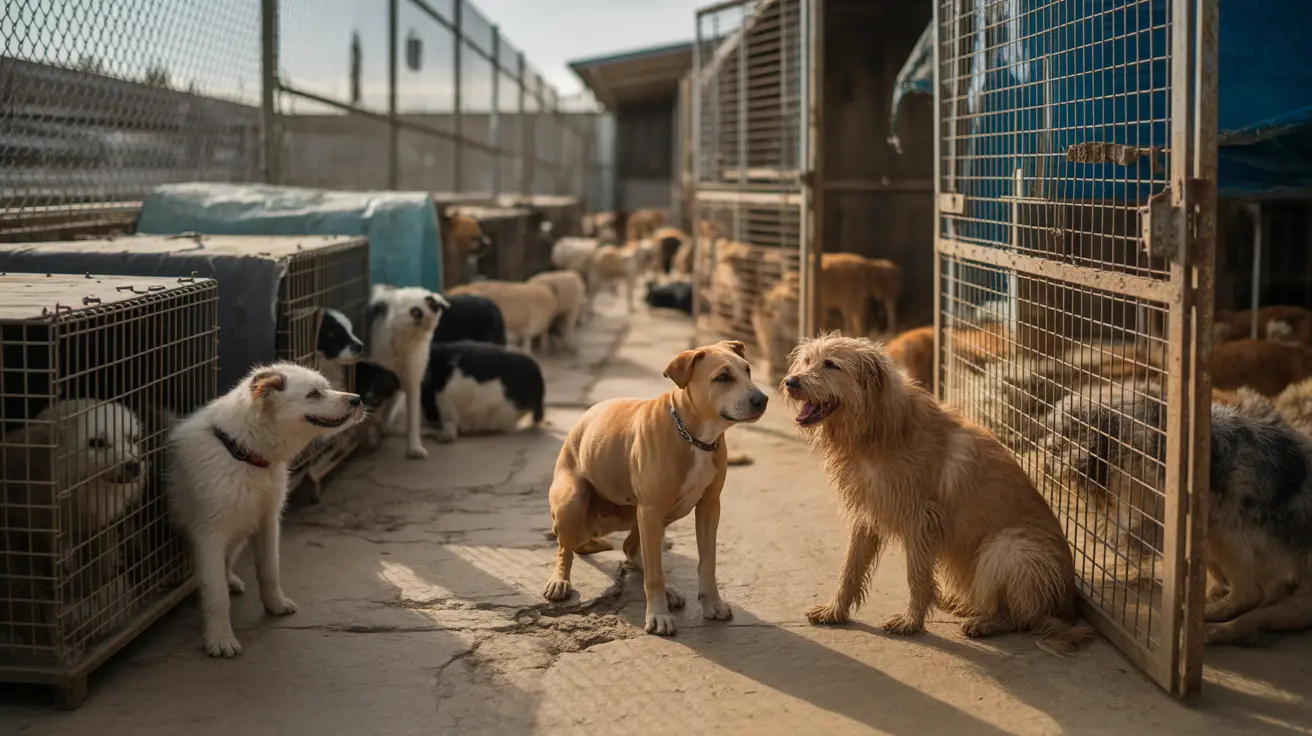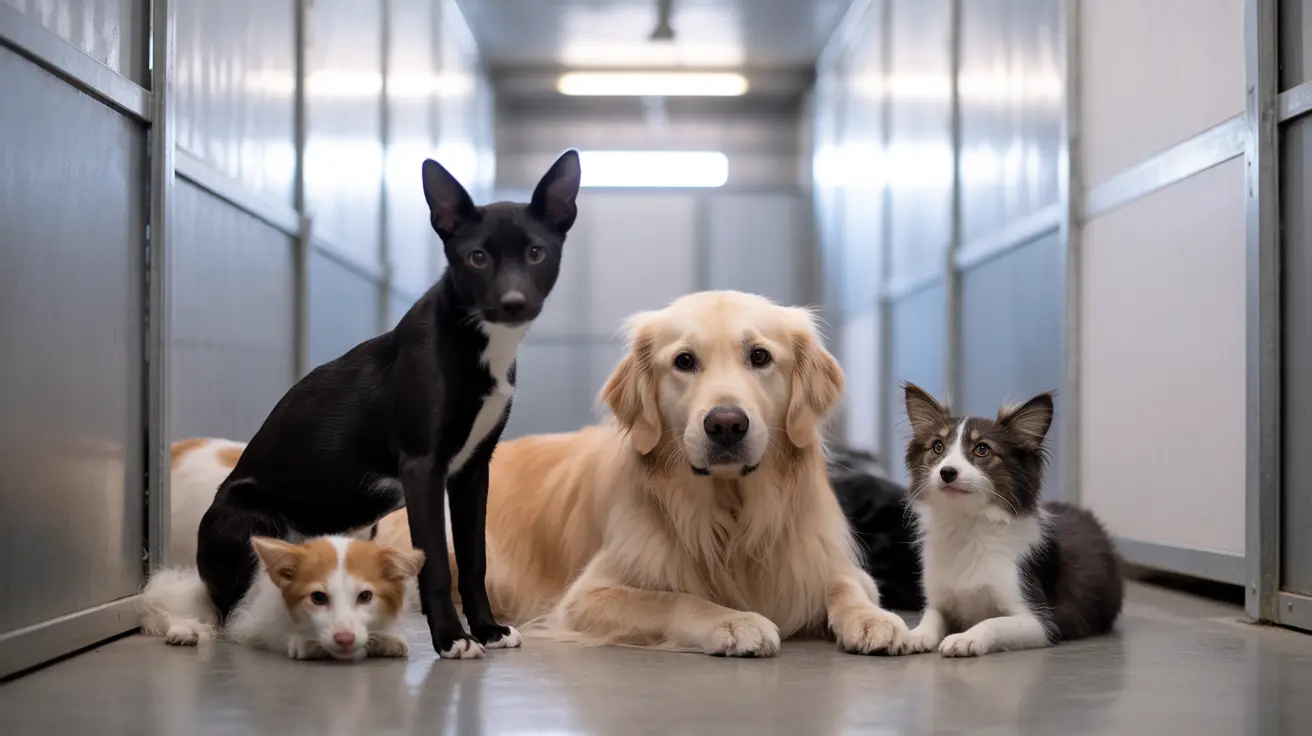What to Do If Your Dog Ate a Little Sugar
Sugar is everywhere in human food, but what happens when your dog sneaks a sweet treat? While sugar isn’t toxic to dogs in small quantities, it certainly isn’t healthy. This article explores what happens when your dog eats sugar, what symptoms to watch for, and safer alternatives.
Understanding Sugar and Its Effects on Dogs
Dogs and humans process sugar differently. Unlike humans, dogs aren't adapted to digest high amounts of processed sugar. Too much sugar in a dog’s diet can lead to multiple health complications, ranging from minor upset stomachs to more serious conditions like obesity or diabetes.
Types of sugar commonly encountered include:
- White (table) sugar
- Brown sugar
- Powdered sugar
- Cane sugar
- Corn syrup
- Coconut sugar
Is Sugar Toxic to Dogs?
Sugar itself is not toxic in the way that xylitol or chocolate is to dogs. However, sugar’s high glucose content and lack of nutritional value make it ill-suited for canine digestion. Even naturally sugary plants like sugar cane can cause gastrointestinal upset due to their fibrous nature.
Potential Health Risks of Sugar in Dogs
If consumed regularly or in large quantities, sugar can contribute to:
- Obesity – Extra calories from sugar can lead to unhealthy weight gain.
- Tooth decay and gum disease – Just like humans, dogs can suffer from poor dental health due to sugar.
- Diabetes – Repeated sugar consumption can disrupt your dog’s insulin balance.
- Pancreatitis – High-fat or sugary foods can inflame the pancreas.
In dogs with chronic illnesses, particularly
diabetes, even a small amount of sugar can be harmful. It can cause dangerous spikes in blood sugar, requiring immediate veterinary care.
What Happens If a Dog Eats a Little Sugar?
For most healthy dogs, eating a small amount of sugar likely won’t cause serious harm. However, some potential
short-term symptoms to watch for include:
- Vomiting
- Diarrhea
- Abdominal discomfort
- Bloating
If your dog eats a piece of sugar cane, the tough, fibrous texture can also pose a
risk of choking or intestinal blockage. This is especially true for small dogs or if the piece was large and not properly chewed.
Steps to Take When Your Dog Eats Sugar
1.
Assess the situation – Determine how much and what kind of sugar was consumed.
2.
Monitor closely – Keep an eye out for signs of distress like vomiting or lethargy.
3.
Avoid additional stress – Don’t feed your dog more treats or new foods to counteract the sugar.
4.
Consult your veterinarian – If your dog has a pre-existing condition or shows symptoms.
When Should You See a Vet?
Seek veterinary care if:
- Your dog has consumed a large quantity of sugar.
- They are displaying persistent symptoms such as vomiting or diarrhea.
- Your dog has diabetes or another health condition affected by sugar.
The Danger of Artificial Sweeteners
Some sweeteners, particularly
xylitol, are extremely toxic to dogs. Found in sugar-free gums and baked goods, xylitol can cause rapid insulin release, leading to hypoglycemia (low blood sugar), seizures, liver failure, or even death. Other sweeteners like:
- Stevia
- Monk fruit
- Erythritol
- Aspartame
- Saccharin
are not considered toxic but are best avoided altogether to minimize risk.
Healthy Alternatives to Sugar
If you want to give your dog a sweet treat, consider
natural sugars found in dog-safe fruits and vegetables. These include:
- Apples (without seeds)
- Blueberries
- Carrots
- Sweet potatoes
These foods are healthier options, packed with vitamins and fiber. Still, they should be offered in moderation and should make up less than 10% of your dog’s diet.
Preventing Future Sugar Intake
-
Keep sugary foods out of reach
-
Educate family members and children about not sharing sweets with pets
-
Use commercial dog treats that are sugar-free and designed for your dog’s specific needs
-
Read labels – many processed foods contain hidden sugars
Conclusion
If your dog consumed a small amount of sugar, they will likely be fine, but mild symptoms may occur. Serious reactions are rare unless large quantities or harmful substances like xylitol are involved. When in doubt, always contact your veterinarian for guidance. Choose healthier, vet-approved treats and monitor their diet closely to keep your furry friend safe and healthy.





